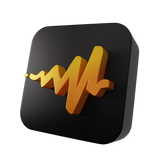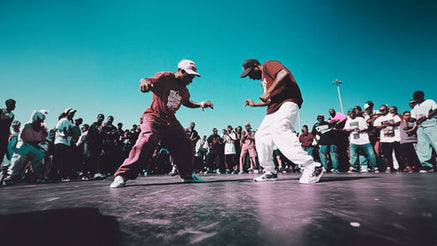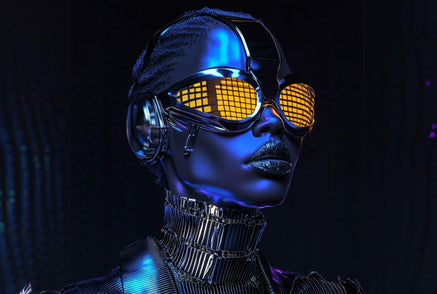How Computer Science and AI Changes the Music Industry?
The technological influence has always been visible over the years, from the implementation of music instruments to AI integration and overall music digitalization. Today, computer science has become one of the most influential sides that changes music and makes it what it is today. Some consider it a bad tendency, as music should be more natural and sound realistic. On the other hand, AI-driven music quickly gained popularity on streaming platforms like Apple Music and Spotify. Creators receive solid engagement on their tracks, as they are now used in trending TikTok videos, ads, and other content. Computer science gives lots of space for music generation and music production, allowing individuals to make the music they like.
The development of AI-driven software helps artists by automating multiple processes, allowing them to create, edit, and publish tracks. In our recent article, we've analyzed the impact of artificial technologies in the music industry and what tools are available for artists today.
In this article, we will widen the topic and talk about the impact of computer science on music creation, music production, and music streaming. It's not only about how you develop your songs, but how you push them to achieve awareness and make a statement as a creator. If you are interested in integrating AI algorithms into your music creation process, this article is exactly what you need.
|
Category |
Technology |
Details |
|
Music Production |
Artificial Intelligence (AI) |
Automates album artwork (77%), mixing/mastering (66%), music production (62%), and songwriting (47%). |
|
Digital Audio Workstations (DAWs) |
Tools like Ableton Live and Logic Pro give options to create virtual instruments, plugins, and commands for digital music creation. |
|
|
AI Composition Tools |
Platforms like AIVA and Jukedeck assist in creating foundational music tracks, automating tedious tasks. |
|
|
Music Promotion |
Data Science |
Streaming platforms use data science to analyze user behavior, enhance personalized recommendations, and inform marketing strategies. |
|
AI in Marketing |
Algorithms predict hits, craft targeted campaigns, and identify niche markets using trends and listener data. |
|
|
Recent Developments |
AI-Generated Music |
AI recreates the voices of deceased artists (e.g., John Lennon), making it possible to revive classic tracks. |
|
Virtual Artists |
The K-pop industry leads in adopting AI with digital twins and virtual artist groups; real-time voice alteration tools are emerging. |
Take a look at several options for using computer science technologies in the music industry.
Traktor Pro 4: The AI-Based Tool for Sound Engineering
The first point we should focus on is the definition of computer science in the context of the music industry. Computer science is a complex study of algorithmic processes, their principles, apps, and overall impact. Most musicians don't study computer science to work on music composition and production. They use programs with special algorithms and advanced technological stacks to edit existing tracks and generate music according to the prompt.
 Traktor Pro 4 is an example of 4-deck DJ software driven by artificial technologies. Compared to the previous version, the updated application gives you more elements for creativity, uses advanced configurations, and has more options for remixing.
Traktor Pro 4 is an example of 4-deck DJ software driven by artificial technologies. Compared to the previous version, the updated application gives you more elements for creativity, uses advanced configurations, and has more options for remixing.
Most tools we have today come in two versions: desktop and mobile. As we live in a fast-paced surrounding, we may not have an option to work in one location. That's why having the software on your smartphone makes it easier to synchronize your actions and keep up at the same pace. Moreover, every year, developers bring in new apps for musicians, so you get even more options to enhance the creative process.
Beyond the Music Industry: Where Else Is AI-Generated Music Used?
AI is transforming music not only in the world of music streaming. Besides sharing their creations on platforms like Spotify and Apple Music, AI-generated tracks make the difference in other niches. The first one that comes to mind is the film and TV industry. With artificial technologies, specialists generate authentic sound effects tailored to the selected scenes, imitating dinosaur roars or making characters speak a fictional language by actually generating it. Creating sounds with AI is way cheaper than doing it in real life, capturing natural sounds and transforming them. Now, you need a proper prompt to come up with the needed sound.
Another niche where specialists rely on computer science technologies to create tracks and sounds is the gaming industry. Game developers, production artists, music producers, and others responsible for special effects and sounds rely on artificial technologies and computer science products. The sound of a sword attack, the hidden blade effect, the magic tricks of the characters, and hundreds of other sounds can be generated by AI. Clear sounds are later integrated with gameplay mechanics or become parts of cutscenes, where you combine visual and audio elements.
Well-made sounds lead to great emotional impact, one of the most important factors for gamers. Unlike classic music listening, the music perception in video games is different. When we listen to music on Spotify or elsewhere, our imagination creates scenes depending on mood, pace, etc. In the video game, it's different. The goal is to make users feel the moment they are in. For example, if it's an action scene, a shootout, a boss battle, or so, music creates the effect of full immersion. AI-driven tools make it possible.
Computational Musicology: A New, Growing Field
The influence of computer science on the music industry forced the development of a new field: computational musicology. Simply put, it's a field that represents the usage of computational technologies to analyze all parts of the songs (notes, rhythms, tempo, chords, patterns, etc.). With this, you can identify historical trends, analyze grammar complexity from lyrics, and conclude how the music style changed over the years. There are four general types of projects in computational musicology:
-
Corpus studies, where individuals use software to analyze lots of statistical patterns and identify pattern changes.
-
Modeling, where the most advanced statistical methods are implemented to uncover patterns and functions that cause changes in tracks.
-
Music encoding is an essential part of computational analysis. You have to reveal the code to receive accurate data and get accurate results.
-
Music information retrieval is a process to automate the musical data encoding process. With that, you extract data from audio and musical scores.

The area where you can use such computational musicology methods is extremely narrow, as you may not need such knowledge to create music. Still, a basic understanding of these processes is important to realize what AI-driven capabilities are available for you in the area of music creation. Moreover, several universities launched programs where computer science and music are combined.
How Does Computer Science Impact Music Promotion?
The best way to describe the impact of computer science on music promotion is in these words: enhancement, simplicity, and accessibility. Years ago, it took days or even weeks to develop music yourself, creating a proper bit and matching it with lyrics. Today, everything looks simple, especially when you have algorithmic tools and apps. For example, tools like Traktor Pro 4 help you mix, reverb, and reorganize the original version of the song the way you want.
Computer science brought a loss of tools to develop music promotion and effectively share your tracks. Artificial intelligence won't change the algorithm to your needs or do something extraordinary. Instead, AI tools can help you analyze listening patterns, evaluate your previous marketing strategies, and close gaps by developing a better plan. For example, artists often rely on old marketing strategies, using stereotypical hooks and getting less than half of the whole engagement. With a complete analysis made with the help of artificial intelligence, you may not need a record label for proper music promotion. Still, free methods should be combined with paid services, so you can boost your music promotion even better with paid music promotion from Artist Push. Organic push will multiply your engagement and even bring new followers interested in your content.
The involvement of artificial technologies changed the music industry, bringing more opportunities for creators. AI pushes musicians, editors, and producers beyond the limits of streaming platforms. Content creation for TV shows, movies, and video games gets easier. Also, it’s easier for musicians to understand their listeners and improve distribution capabilities by following the latest music trends and patterns
What do technologies bring to the music industry?
How is computer science used in the music industry?
What are virtual instruments?
How can technologies affect the music industry in the future?
























Jason Brooks
AI can democratize music production, allowing indie artists like me to experiment with new styles. Yet, the potential for copyright infringement can’t be ignored.
AI can democratize music production, allowing indie artists like me to experiment with new styles. Yet, the potential for copyright infringement can’t be ignored.